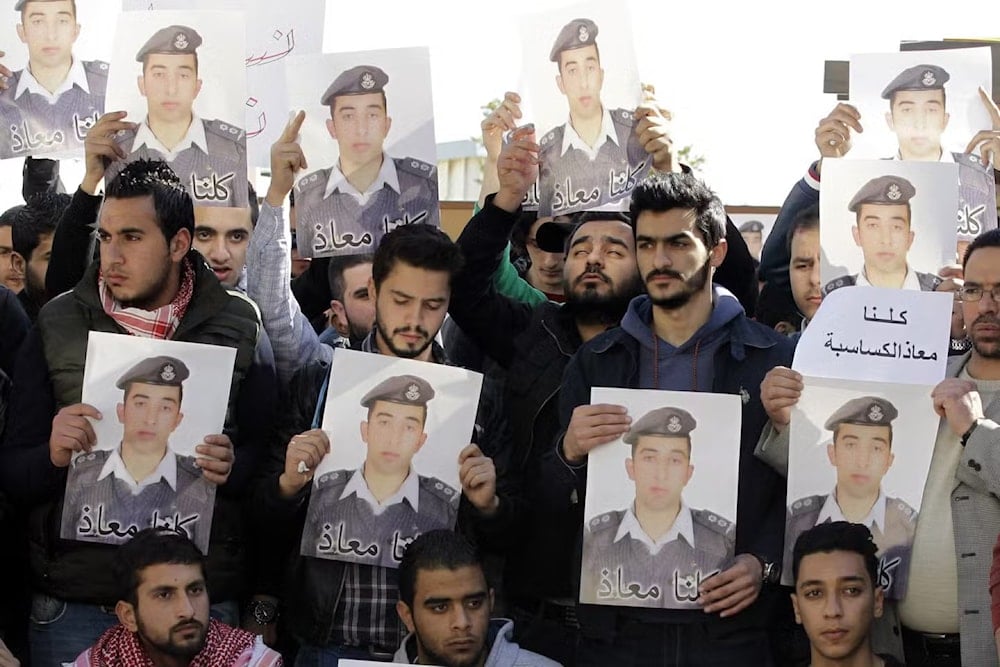Swedish court gives ISIS member life in prison for executing Kassasbeh
Swedish court sentences ISIS member Osama Krayem to life in prison for his role in the 2015 execution of Jordanian pilot Muath al-Kassasbeh.
-

A rally calling for the release of Jordanian pilot Muath al-Kassasbeh in the Jordanian capital of Amman, on February 3, 2015 (AFP)
A Swedish court has sentenced Osama Krayem to life imprisonment for his involvement in the 2015 execution of Jordanian pilot Muath al-Kassasbeh, who was burned alive by ISIS in Syria. The verdict marks a significant precedent in Sweden’s pursuit of accountability for international war crimes.
Swedish court convicts Osama Krayem for war crimes
The Stockholm District Court found Krayem guilty of "serious war crimes and terrorist crimes." According to Judge Anna Liljenberg Gullesjo, the investigation revealed that Krayem was present at the execution site, dressed in uniform and armed, and permitted himself to be filmed. While video footage showed another ISIS member lighting the fire, the court ruled that Krayem's actions significantly contributed to Muath al-Kassasbeh’s death, justifying his conviction as a direct perpetrator.
Krayem, 32, is already serving lengthy sentences in France for his role in the Paris and Brussels attacks in 2015 and 2016, respectively. He was extradited to Sweden to stand trial for his participation in the killing. Despite denying intent, he received a life term under Swedish law.
Gruesome execution of Muath al-Kassasbeh
On December 24, 2014, a Royal Jordanian Air Force F-16 aircraft crashed near Raqqa, Syria, during coalition operations against ISIS. Muath al-Kassasbeh, the pilot, was captured by ISIS fighters on the same day. After unsuccessful negotiations for a prisoner exchange, ISIS murdered al-Kassasbeh by burning him alive inside a cage in early January 2015.
A high-production, graphic video released on February 3, 2015, depicted the brutal killing. The footage, lasting 22 minutes, showed the 26-year-old pilot walking past masked ISIS fighters, including Krayem, before being enclosed in the cage and set on fire. The video was designed to terrorize coalition forces and the Jordanian public while serving ISIS’ propaganda goals.
Krayem’s role in ISIS
Krayem’s conviction adds to his record of terrorist activities. His previous sentences in France reflect his involvement in major ISIS-planned attacks on European soil. His extradition and trial in Sweden underscore growing international collaboration in addressing terrorism and war crimes.
Although another ISIS member was the one who physically lit the fire, Krayem was deemed complicit being part of the militant group that staged and filmed the execution. His presence and participation were deemed essential to the act.

 3 Min Read
3 Min Read








